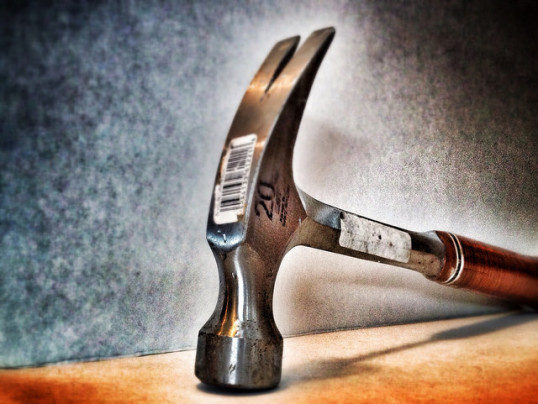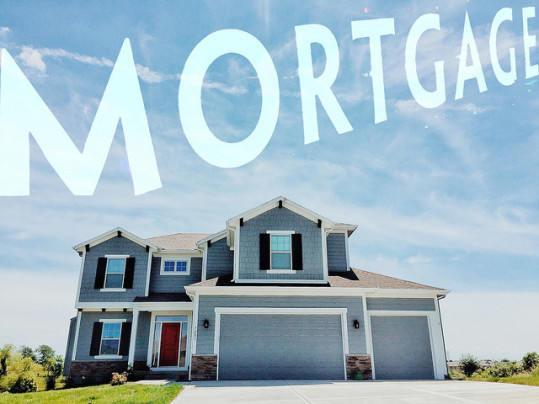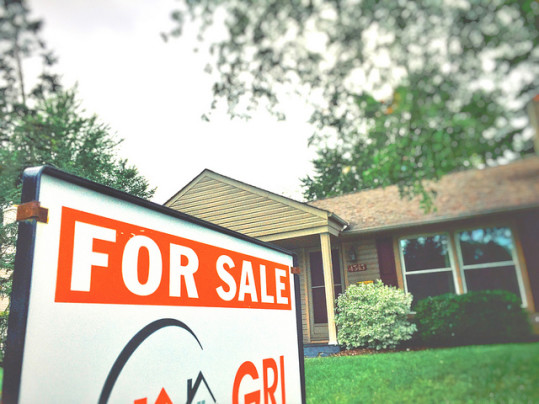If anyone knows the new home market, it’s builders. After all, their business depends on demand for newly built homes. That’s why the National Association of Home Builders surveys them monthly to gauge their perception of the market today and over the next six months. According to their most recent survey, builders are optimistic, even setting a post-recession high for expectations for future sales. “The HMI gauge of future sales expectations has reached a post-recession high, an indicator that consumer demand for housing should grow in the months ahead,” Robert Dietz, NAHB’s chief economist, said. “With ongoing job creation, increasing owner-occupied household formation, and a tight supply of existing home inventory, the single-family housing sector should continue to strengthen at a gradual but consistent pace.” What does this mean for the overall market and for home buyers this year? Well, if the number of new homes being built rises, that will help take some upward pressure off home prices. That means, more new home sales may provide a significant benefit – and not just for home builders. More here.
Archive for February 2018
Stock Market Volatility Shakes Mortgage Demand
According to the Mortgage Bankers Association’s Weekly Applications Survey, demand for mortgage applications fell 4.1 percent last week from the week before. But though there was another increase in average mortgage rates, the decline was not seen as solely a reaction to higher rates. In fact, the drop was seen, at least partially, as a response to volatility in the stock market last week. Joel Kan, an MBA economist, told CNBC he still expects activity to grow as we enter the spring season. “Refinance activity is continuing along a floor, while the drop in purchase may be related to short term stock market jitters,” Kan said. “We still expect activity to pick up as we make our way into early spring.” Spring is traditionally the season when the housing market heats up and potential buyers start looking for homes to buy. This year, the spring buying season is expected to be particularly busy, with some saying home buyers are even trying to get a jump on competition by hitting the market earlier than usual. The MBA’s weekly survey has been conducted since 1990 and covers 75 percent of all retail residential mortgage applications. More here.
Bedroom Communities Top List Of Safest Cities
A “bedroom community” refers to a suburb outside a major metropolis where the majority of residents commute to the city for work. These town have a number of characteristics that identify them but, according to new research from NeighborhoodScout, they are also known for safety. In fact, these suburban cities topped their most recent list of the nation’s safest cities. Andrew Schiller, CEO of NeighborhoodScout, says bedroom communities combine features that are attractive to home buyers. “We continue to see bedroom communities, which are within large metro areas and near major urban centers like Boston, Chicago, and New York, make the top of our list,” Schiller says. “These safe communities within the urban/suburban fabric of America’s largest metropolitan areas often combine access to high-paying jobs in the urban center, decent schools, and a high quality of life. This access to opportunity increases home values, with the result often being lower crime.” Cities in the Northeast topped the list, including Ridgefield, CT, which was named the country’s safest city. More here.
55+ Homeowners Account For 67% Of Home Equity
Equity is among the main arguments in favor of homeownership. After all, as you pay your mortgage each month, you are, in essence, putting away money that you will be able to draw from should you ever sell your house or take out a home equity loan. In short, homeownership can act as a type of forced savings account. The results of the Federal Reserve’s most recent Survey of Consumer Finances provides some evidence of this. According to the survey, homeowners over the age of 55 held $10.6 trillion in residential equity, which accounts for 67% of the $15.8 trillion total equity for all primary residences in the U.S. In other words, older homeowners – who are more likely to have owned their home for an extended period of time – have built up a lot of equity, either through paying off their mortgage over time or through price appreciation. Either way, for those homeowners, owning a home has provided a financial asset that can benefit them in retirement. For example, research shows buyers in age-restricted communities often don’t take out a mortgage – since they are able to use the equity they’ve acquired as a source of a down payment. More here.
Single Home Buyers Face Added Challenges
Without the benefit of two incomes, single home buyers face some added challenges when looking to buy a house. For one, it takes longer to save for a down payment. In fact, according to a new analysis, married or partnered couples can save a 20 percent down payment on the typical home in less than five years. For single home buyers, it takes closer to 11 years. Add to that, single home buyers are more likely to be looking for a smaller, affordable home – which is precisely the type of house that is currently in highest demand. Zillow senior economist, Aaron Terrazas, says two incomes helps with savings but also with increasing the number of homes available to buy. “Single buyers typically have more limited budgets, which means they are likely competing for lower-priced homes that are in high demand,” Terrazas said. “Having two incomes allows buyers to compete in higher priced tiers where competition is not as stiff.” Of course, your individual financial situation and local market conditions will ultimately determine how much you’ll need to save and how much competition you’ll face for available homes. But single, married, or otherwise, it’s best to be as prepared as possible before heading out to look for a house to buy. More here.
Americans’ Interest In Housing Market Heats Up
As spring approaches, there’s always an increase in the number of Americans who express interest in buying or selling a house. For many reasons, spring is traditionally the season when the housing market heats up. So, it’s no surprise that Fannie Mae’s most recent monthly measure of Americans’ feelings about the housing market shows an increase in optimism. In fact, the number of survey respondents who said now was a good time to buy a house rose 3 percent from the month before and the number who feel it’s time to sell rose to a new survey high. In other words, interest is high. But, according to Doug Duncan, Fannie Mae’s chief economist, it’s difficult to say yet how the market will perform this year. “Results may continue to fluctuate over the coming months as consumers sort out the implications of the newly passed tax legislation on their household finances,” Duncan said. However, with high interest from buyers and sellers, and a growing economy, early signs point to a busy spring for the housing market. More here.
Mortgage Demand Up Despite Rising Rates
According to the Mortgage Bankers Association’s Weekly Applications Survey, average mortgage rates rose again last week. In fact, increases were seen on 30-year fixed-rate mortgages with both conforming and jumbo balances, loans backed by the Federal Housing Administration, and 15-year loans. But, despite rising rates, purchase application demand – or the number of potential home buyers requesting applications for loans to buy homes – is still up 8 percent over last year at the same time. That means, home buyers are out in force and possibly looking to get a jump on the spring season – and potentially higher rates. Mike Fratantoni, MBA’s chief economist, says rates will likely continue to rise. “A strong job market, accelerating wage growth, and expectations of faster rate hikes from the Fed all have played roles in pushing up longer-term rates,” Fratantoni said. That means, as long as the economy continues to improve, we will likely see steadily increasing interest rates. However, though higher than they’ve been, rates are still low by historical standards. The MBA’s weekly survey has been conducted since 1990 and covers 75 percent of all retail residential mortgage applications. More here.







